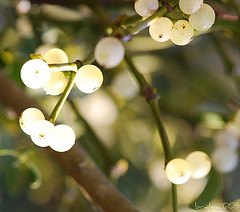
 For thousands of years, humans have been using plants to heal themselves. Even today, many of our modern medications come from plants before being processed. The University of Washington recently reported on a medicine derived from sweet wormwood (a traditional Chinese herb) that has been found to kill cancer cells 10 times better than current chemotherapy drugs.
For thousands of years, humans have been using plants to heal themselves. Even today, many of our modern medications come from plants before being processed. The University of Washington recently reported on a medicine derived from sweet wormwood (a traditional Chinese herb) that has been found to kill cancer cells 10 times better than current chemotherapy drugs.
We know many of you out there are interested in trying natural supplements to help fortify your systems while battling cancer. We’ve gathered a list here of some herbs which have shown anti-cancer activity. Most are still unproven, as the studies were done only in vitro or in animals, but there is potential. Be careful if you do decide to try some of these. Seek the advice of a naturopath, and find a reliable manufacturer so you’re sure you’re getting the real thing. Of course, tell your doctor as some supplements can interfere with treatment.
Essiac: An herbal cancer treatment developed by a Canadian nurse, essiac is a combination of four herbs that have shown anti-cancer activity in independent tests: Burdock, Indian rhubarb, sorrel, and slippery elm.
Sweet wormwood: Used to treat malaria for more than 1,000 years in China, terpenoids and flavonoids from this herb have shown to have toxic properties on human tumor cells. Two of the plant’s components have been studied as anti-cancer treatments. (Sloan Kettering advises post-partum women with anemia and patients with ulcers or gastrointestinal disorders not to take this herb.)
Mistletoe: According to the National Cancer Institute, mistletoe has been shown to kill cancer cells in the laboratory and to boost the immune system. Animals studies have shown that it may be useful in decreasing side effects of chemotherapy. The National Center for Complementary and Alternative Medicine (NCCAM) is currently analyzing more cancer-related data on this herb. Mistletoe extracts appear to be safe most of the time, though some people may have allergic responses. (Mistletoe plants and berries are toxic to humans.)
Barbat skullcap (Scutellaria barbata): A prennial herb prevalent in Korea and southern China, scutellaria barbata has shown anticancer activity and the ability to inhibit tumor growth-both in vitro. No human studies have yet been published. Barbat skullcap is often used together with oldenlandia in Chinese medicine.
Oldenlandia: Famous for treating snake bites, this herb is most commonly used in traditional Chinese medicine for treating cancer. It has been studied with cancer in animals and on human cells in vitro, but has yet to show activity in humans.
Have you heard of a cancer-fighting herb with studies behind it? Please let us know.
Photo courtesy of bridgy2008 via Flickr.com.

